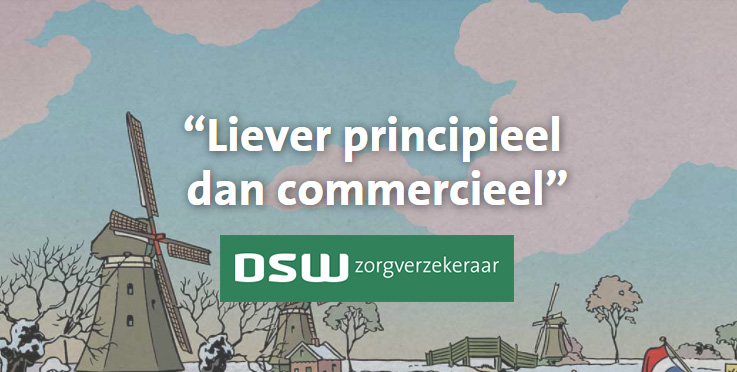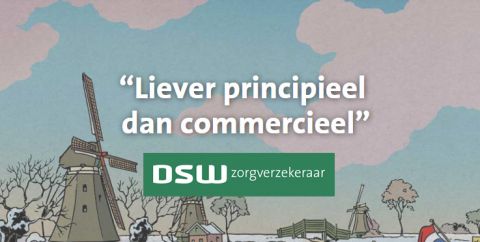Summaries per chapter with the 15th edition of The Practice of Social Research by Babbie - Bundle
Study guide with The Practice of Social Research by Babbie
Study guide with The Practice of Social Research
Online summaries and study assistance with the 15th edition of The Practice of Social Research by Babbie
- For Bulletsummaries with The Practice of Social Research by Babbie, see Bulletsummaries per chapter with the 15th edition
- For Booksummaries with The Practice of Social Research by Babbie, see Summaries per chapter with the 15th edition
- For Exam tickets with The Practice of Social Research by Babbie, see ExamTickets per chapter with the 15th edition
- For summaries and glossaries with earlier editions of The Practice of Social Research by Babbie, see Study guide with The Practice of Social Research by Babbie
Related content on joho.org
What is the book 'The Practice of Social Research' by Babbie about? - Chapter 0
This summary was written on the basis of the 15th edition of 'The Practice of Social Research'. The book was written by Earl Babbie, who is an Emeritus Professor who taught at the chapman University in southern California. The book can be divided up into four parts. Part 1, consisting of chapter 1 to 3, outlines an introduction to inquiry. Hereafter, part 2, consisting of chapter 4 to 7, summarises the structuring of inquiry and describes the distinction between quantitative and qualitative research. It also dives into the topics of sampling, research designs, conceptualisation, operationalisation and measurement. Part 3 of 'The Practice of Social Research' describes the different modes of observations, such as experiments (chapter 8), survey research (chapter 9), qualitative field research (chapter 10), unobtrusive research (chapter 11) and evaluation research (chapter 12). Lastly, part 4, consisting of chapters 13 to 17, dives into the process of quantitative and qualitative data analysis. It also outlines the practice of multivariate analysis, social statistics, and reading and writing social research.
How are human inquiry and science conducted? - Chapter 1
- What is this chapter about?
- What is reality?
- How does inquiry take place?
- What errors can occur during inquiry?
- What are the building blocks within social research?
- What are the purposes of social research?
- How do ethics play a role in social research?
- What is the difference between idiographic explanations and nomothetic explanations?
- What are inductive and deductive theories?
- Why is tolerance for ambiguity important in social science?
- What are quantitative and qualitative data used for?
- What does a research proposal look like?
What is this chapter about?
This chapter discusses how people gain new knowledge and highlights the most important errors in inquiry than people tend to make within this process. Then, this chapter describes the important key terms within social research. Lastly, this chapter outlines the differences between inductive research and deductive research, and explains the important of tolerance for ambiguity within the field of social research.
What is reality?
What is reality is a hard question to answer. Much of what we know, we know by agreement rather than by experience: Scientists accept an agreement reality, which means that they agree on certain facts even when they don't have personal experience with the matter. Scientists have special standards for accepting an agreement reality. The science of knowing is referred to as epistemology. Methodology is the science of 'finding out'. This book is a presentation of social science methodology.
How does inquiry take place?
Inquiry is a natural human activity. Much of ordinary human inquiry seeks to explain events and predict future events. In other words, we are good at using causal reasoning and probabilistic reasoning. When we understand through direct experience, we make observations and seek patterns or regularities in what we observe. Our attempts to learn about the world are only partly linked to direct observations, but in a larger part it comes from agreed-on knowledge that others give to us. Two important sources of agreed-on knowledge are tradition and authority.
- Each person inherits a culture that consists of accepted knowledge about how the world works. It also contains values that guide our actions in the world.
- We inquire new knowledge through new discoveries and understandings that are produced by others. Acceptance of new discoveries depend on the status of the discoverer. We are more likely to accept new knowledge as true when the discoverer has a high status.
What errors can occur during inquiry?
However, these useful sources of knowledge can also lead us astray. Whereas we often observe inaccurately in day-to-day inquiry, researchers seek to avoid such errors by making observation a careful and deliberate activity. We distinguish four common errors that are made during casual day-to-day inquiries: inaccurate observations, overgeneralisation, selective observation and illogical reasoning.
- Quite frequently, we make mistakes in our observations. Scientific observation is, in contrast to causal human inquiry, a conscious activity. Measurement devices help guard against inaccurate observations.
- We sometimes jump to general conclusions on the basis of only a few observations. Scientists seek to avoid this overgeneralisation by committing to a sufficient number of observations and by replicating studies. Replicating another scientific study refers to repeating a study and checking to see whether the same results occur each time.
- There is a risk that we will pay attention only to observations that fit with our expectations. This phenomenon is referred to as selective observation.
- In everyday life, we sometimes reason illogically. Researchers seek to avoid illogical reasoning by being careful and deliberate in their reasoning as in their observations. Moreover, the public nature of science means that others can always challenge faulty reasoning.
What are the building blocks within social research?
Social theory attempts to discuss and explain what is, not what should be. Theories should not be confused with philosophy or beliefs. A scientific theory cannot settle debates on value: Science cannot determine whether some social phenomenon or construct is better than another. Scientists agree on measurable definitions of social constructs in order to be able to conduct social research. Theories are written in the language of variables. A variable is a logical set of attributes. An attribute is a characteristic. Sex, for example, is a variable made up of the attributes male and female. In formulating causal explanations, the presumed cause is the independent variable and the affected variable is the dependent variable.
What are the purposes of social research?
Social science looks for the regularities in social life. Social scientists are interested in explaining human aggregates, not individual people. Social research has three main purposes: exploring, describing and explaining. Many social research projects reflect more than one of these purposes.
- Social research aims to explore social phenomena.
- Then, social research also aims to describe social phenomena.
- Lastly, it aims to explain the social phenomena.
How do ethics play a role in social research?
Ethics also play a key role in the practice of social research. Medical, social and other studies of human beings have often used methods that are later condemned as unethical. There are various concerns that distinguish ethical from unethical research.
What is the difference between idiographic explanations and nomothetic explanations?
We make a distinction between idiographic explanations and nomothetic explanations.
- Idiographic explanations seek to present a full understanding of specific cases. The word 'idiographic' refers to the fact that the approach aims to explain a certain events or particular condition by exhausting the idiosyncratic causes. The scope of idiographic explanations is always limited to the case at hand.
- Nomothetic explanations seek to present a generalised account of many cases. It is an approach to explanation in which we seek to identify a few causal factors that generally impact a class of conditions or events. It seeks to explain a class of situations or events rather than a single one.
What are inductive and deductive theories?
We also make a distinction between inductive theories and deductive theories.
- Inductive theories reason from specific observations to general patterns. Induction refers to the logical model in which general principles are developed from specific observations.
- Deductive theories start from general statements and predict specific observations. Deduction refers to the logical model in which specific expectations of hypotheses are developed on the basis of general principles.
Why is tolerance for ambiguity important in social science?
The underlying logic of traditional science implicitly suggests a deterministic cause-and-effect model in which individuals have no choice, although researchers do not say or necessarily believe that. Some researchers are intent on focusing attention on the "agency" by which the subjects of study are active, choice-making agents. The issue of free will versus determinism in an old one in philosophy, and people exhibit conflicting orientations in their daily behavior, sometimes proclaiming their freedom and other times denying it. Tolerance for ambiguity refers to the ability to hold conflicting ideas in your mind simultaneously, without denying or dismissing any of them. Tolerance for ambiguity is an important skill in social research, as we may exercise our individual responsibility by setting out to change to social forces that have an impact on our lives.
What are quantitative and qualitative data used for?
We make a distinction between quantitative data and qualitative data. Both quantitative and qualitative data are useful for different research purposes.
- Quantitative data are numerical.
- Qualitative data are not numerical.
What does a research proposal look like?
Most organised research beings with a description of what is planned in the project, what questions it will raise and how it will answer them. Often, such research proposals are also created for the purpose of getting the resources needed to conduct the research envisioned.
A research proposal generally consists of an introduction, a review of the literature, a specification of the problem, the research design, the data-collection method, the selection of subjects, ethical issues, data analysis and a bibliography.



















